Archive
17 March 2022
Spotlight on aggressive cancer cells
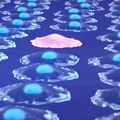
Metastases in cancer are often caused by a few abnormal cells. These behave more aggressively than the other cancer cells in a tumour. Miao-Ping Chien and Daan Brinks are working together, from two different universities, on a method to detect these cells. Their research has now been published in Nature.
16 March 2022
New Cas9 model maps DNA cutting behaviour for the first time
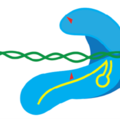
Researchers from the TU Delft have come up with a physical-based model that establishes a quantitative framework on how gene-editing with CRISPR-Cas9 works, and allows them to predict where, with what probability, and why targeting errors (off-targets) occur. This research, which has been published in Nature Communications, gives us a first detailed physical understanding of the mechanism behind the most important gene editing platform of today.
15 March 2022
Cell unstuck: how a glue-like protein can make our cells move
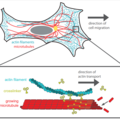
An essential aspect of the cells in our body is their ability to move, to repair certain tissues or chase intruders, for example: but how do they do it? Scientists from TU Delft, AMOLF and Utrecht University reveal how glue-like proteins called crosslinkers could not only help to hold the whole cell together passively, but surprisingly cause the cell to move as well. The research is now published in PNAS.
15 March 2022
Vici grants for two leading TU Delft researchers

The Dutch Research Council (NWO) has awarded two TU Delft researchers a Vici grant of up to 1.5 million euros. This will enable them to develop an innovative line of research and further expand their own research group for a period of five years. Vici is one of the largest personal scientific grants in the Netherlands and is aimed at advanced researchers.
10 March 2022
The Battolyser: battery and hydrogen factory in one

Currently, storage is the key issue holding back the energy transition. Professor Fokko Mulder and CEO Mattijs Slee from Battolyser Systems are within reach of the solution: the Battolyser is a battery and a hydrogen factory in one. The TU Delft spin-off is a textbook example of how to create impact from research.
25 February 2022
Delft scientists present “green” series of children's lectures

We generate more and more electricity from solar panels and windmills, but what if there is no wind and the sun is not shining? Will you still be able to charge your phone? This is one of the many questions that will be addressed in a brand new series of lectures by the MuseumJeugdUniversiteit. For this "green" series – made especially for children between the ages of 8 and 12 – this long-term collaboration between MuseumJeugdUniversteit and Science Centre Delft travels to the TU Delft campus, which celebrates its 180th anniversary this year.
24 February 2022
Mark van Loosdrecht wins Novozymes Prize for 25 years of revolutionary wastewater treatment

The development of new technologies for biological wastewater treatment is turning our view of sludge upside down. Microbiologist Mark van Loosdrecht receives the 2022 Novozymes Prize for his pioneering work in copying and reusing nature’s mechanisms in wastewater treatment and resource recovery. Van Loosdrecht: “Treating wastewater will become good business in the future.”
23 February 2022
Signal discovered that connects cell size with cell growth
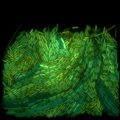
The mechanisms connecting growth with cell size have been mysterious – up till now: in a recent publication in Current Biology, researchers from TU Delft and AMOLF have uncovered that the signaling molecule ppGpp is essential to regulate cell size. Surprisingly, they also discover cells adjust their sizes to concentrations of ppGpp, rather than strictly according to growth rate.
07 February 2022
ERC Proof of Concept Grant for Arjen Jakobi
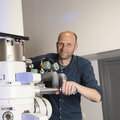
Arjen Jakobi (Department of Bionanoscience) receives the ERC Proof of Concept Grant for his groundbreaking research on cryogenic electron microscopy (cryo-EM). "This grant will allow us to take our new CryoChip technique for high resolution images of protein molecules to the next level for the development of new drugs," says Jakobi.
24 January 2022
TU Delft's Reactor Institute takes another step forward as a testing ground for innovation

The Reactor Institute Delft (RID) continuously invests in better measuring methods and techniques in order to facilitate pioneering research. We have accelerated this with the OYSTER (Optimised Yield - for Science, Technology & Education - of Radiation) programme.